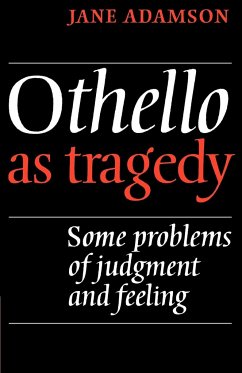Critical views of Othello have polarized during the last forthy years. The dispute is between those who follow Coleridge and Bradley and see Othello as noble but diabolically misled, and those who follow Eliot and Leavis and see him as a criminal egotist. Jane Adamson argues that both views are too simple and that both deprive the play of tragic point. She is concerned to re-instate the play as a great tragedy, and Othello as a complex tragic figure. She considers in detail how the drama unfolds; how Otheloo's predicament provides a focus for moral questions raised in all the other characters; how the reader or spectator becomes painfully involved with similar questions in trying to understand the action; and how in these ways the play continually undercuts easy moral simplifications. During this study a great deal else in Shakespeare is illuminated - especially his insight into the need for love, and the dangers inseparable from the need.
Table of contents:
Preface; Introduction; 1. The 'comforts' of praise and blame; 2. 'Injuries' and 'remedies': the first two acts; 3. 'Pluming up the will': Iago's place in the play; 4. Personal and professional identity: Othello in the first two acts; 5. 'Alacrity in hardness': Othello's crisis in Acts III and IV; 6. The 'hollow hell' of vengeance: Othello's attempted remedies; 7. Self-charity and self-abnegation: the play's women in love; 8. The 'power to hurt' and 'be hurt', 'past all surgery': the final scene.
Hinweis: Dieser Artikel kann nur an eine deutsche Lieferadresse ausgeliefert werden.
Table of contents:
Preface; Introduction; 1. The 'comforts' of praise and blame; 2. 'Injuries' and 'remedies': the first two acts; 3. 'Pluming up the will': Iago's place in the play; 4. Personal and professional identity: Othello in the first two acts; 5. 'Alacrity in hardness': Othello's crisis in Acts III and IV; 6. The 'hollow hell' of vengeance: Othello's attempted remedies; 7. Self-charity and self-abnegation: the play's women in love; 8. The 'power to hurt' and 'be hurt', 'past all surgery': the final scene.
Hinweis: Dieser Artikel kann nur an eine deutsche Lieferadresse ausgeliefert werden.








